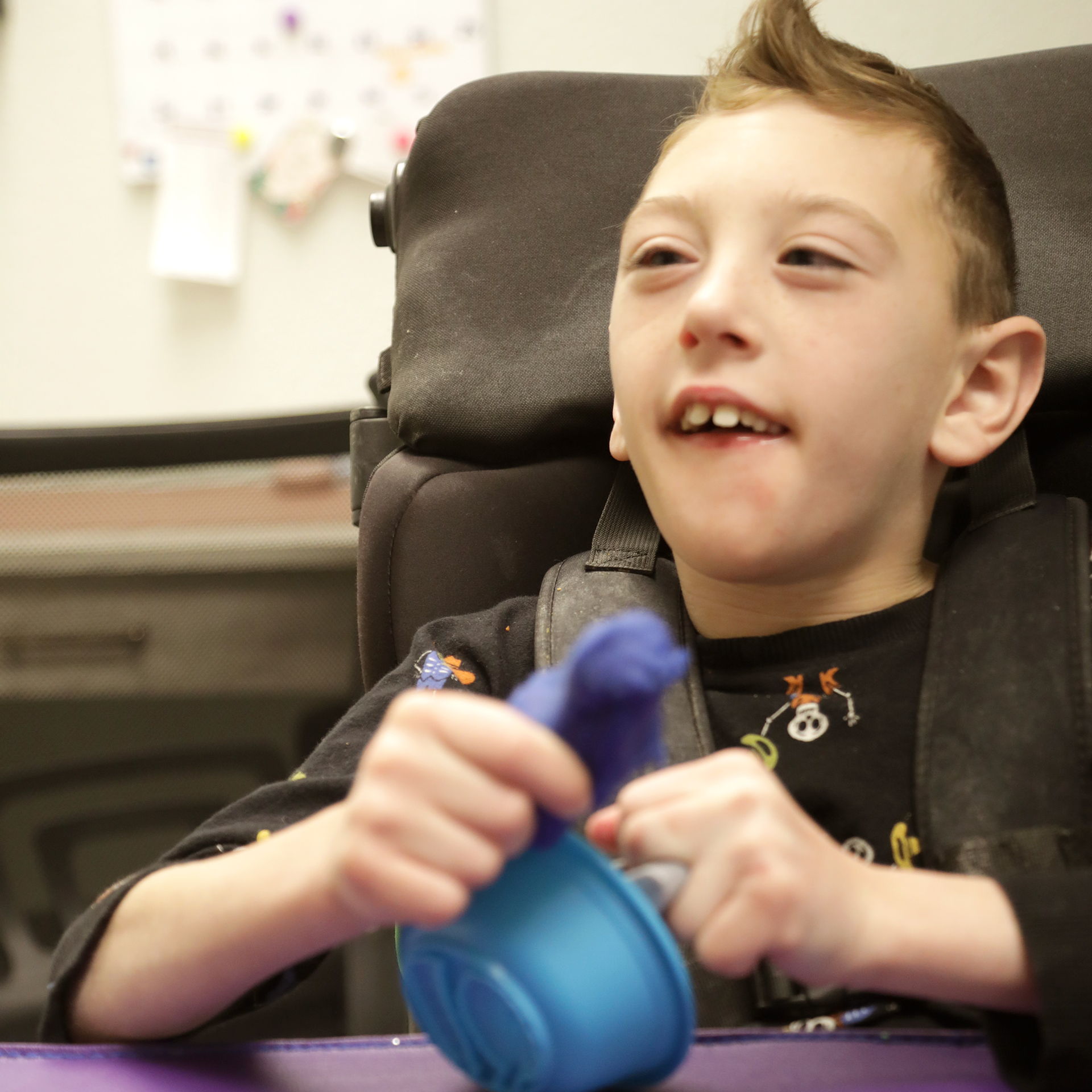The Role of ABA Therapy in Building Self-Esteem


Understanding How ABA Therapy Fosters Self-Esteem in Individuals with Autism
Applied Behavior Analysis (ABA) is a scientifically validated approach aimed at understanding and modifying behaviors to improve the lives of children and adults with autism. Its tailored, evidence-based strategies not only target skill development but also play a crucial role in building self-esteem. This article explores how ABA therapy can empower individuals by enhancing their communication, social skills, independence, and resilience, ultimately fostering a positive self-view.
Fundamentals of ABA Therapy and Its Focus on Behavior Change
How does ABA therapy improve self-esteem in children and individuals with autism?
Applied Behavior Analysis (ABA) is a proven, science-based approach that helps children and individuals with autism develop essential skills, including communication, social interaction, and self-care. By fostering these skills, ABA plays a vital role in enhancing self-esteem.
One way ABA boosts confidence is through the development of social and communication abilities. Techniques like modeling, role-playing, and natural environment training allow children to practice social interactions in safe, structured settings. This repetition builds familiarity, reduces anxiety, and encourages more effective expression.
Positive reinforcement is central to ABA. Rewards such as praise, tokens, or preferred activities motivate children to engage and succeed. When children see their efforts lead to positive outcomes, they develop a stronger sense of competence.
Structured routines and personalized goal setting also foster a sense of achievement. Celebrating small successes creates momentum and encourages children to tackle new challenges with confidence.
Furthermore, involving parents, teachers, and caregivers in training ensures a consistent, supportive environment outside therapy sessions. This reinforcement at home and in school promotes independence and reinforces progress.
By cultivating meaningful social relationships, improving communication skills, and encouraging independence, ABA helps individuals develop a more positive self-view. In turn, this supports long-term growth in self-esteem, resilience, and overall well-being.
What principles and techniques of ABA therapy support self-esteem enhancement?
ABA therapy’s fundamental principles—like reinforcement, structured learning, and individualized interventions—directly contribute to boosting self-esteem.
Positive reinforcement involves rewarding desirable behaviors, which increases their occurrence. This process helps individuals realize their capabilities, fostering a sense of accomplishment and confidence.
Several techniques such as Discrete Trial Training (DTT), Pivotal Response Training (PRT), and Functional Communication Training (FCT) are specifically designed to teach vital skills efficiently. These strategies break complex tasks into small, manageable steps, enabling immediate success and reinforcing feelings of mastery.
Customization is a hallmark of effective ABA; thorough initial assessments inform personalized intervention plans. Tailoring activities to each individual's strengths and needs makes learning relevant and achievable.
Visual supports, social stories, and self-management strategies further reduce anxiety and promote autonomy. When learners are supported to succeed independently, their sense of control and self-worth increases.
Throughout all phases, data collection and progress monitoring ensure that interventions remain effective and engaging. This ongoing tracking provides tangible evidence of growth, which enhances motivation and self-confidence.
Overall, ABA’s systematic, positive, and personalized approach creates a nurturing environment where individuals can experience consistent success, fostering a sense of self-efficacy and boosting self-esteem.
Targeted Skill Development for Confidence and Independence

How does ABA therapy help children develop confidence and essential life skills?
ABA therapy plays a vital role in nurturing confidence and life skills in children by applying structured, evidence-based strategies such as task analysis and positive reinforcement. It starts by breaking down complex skills like communication, self-care, and social interactions into smaller, manageable steps. This approach allows children to experience success at each stage, fostering a growth mindset and encouraging perseverance.
One of the core methods involves reinforcing desirable behaviors with valued rewards, which motivates children to repeat those actions. As children master skills such as dressing, grooming, or engaging in social greetings, they gain a sense of competence and independence. The therapy’s personalized nature—based on detailed assessments and ongoing progress monitoring—ensures that interventions are tailored to each child's unique needs and strengths.
Celebrating small milestones further builds self-esteem and motivates continued effort. Over time, children become more confident in their abilities to perform daily routines, communicate their needs, and interact socially. This positive reinforcement and structural learning environment empower children to actively participate in daily life with increased independence and assurance.
In what ways does ABA therapy help children build resilience and cope with challenges?
ABA therapy encourages resilience by equipping children with adaptive behaviors, emotional regulation skills, and effective communication. Through tailored interventions such as role-playing and real-world practice, children learn to manage difficulties and respond to challenges more confidently. These strategies help them develop problem-solving abilities and emotional coping mechanisms.
ABA addresses emotional challenges like anxiety or frustration by teaching children to recognize their feelings, identify triggers, and develop coping strategies. This comprehensive approach promotes emotional resilience and improved mental health.
Furthermore, ABA promotes independence by teaching functional skills that reduce reliance on others and enable children to navigate various environments like home, school, and community more effectively. Active family involvement enhances consistency and generalization of skills across settings.
Long-term, ABA supports personal growth by fostering confidence, resilience, and the ability to adapt to new or difficult situations. It empowers children to view challenges as opportunities for learning, encouraging them to pursue their goals with optimism and strength.
| Skill Area | Techniques Used | Outcomes |
|---|---|---|
| Communication Skills | Modeling, social stories, reinforcement | Improved verbal and non-verbal expression, understanding cues |
| Social Interactions | Turn-taking, sharing, role-play | Increased peer relationships, social confidence |
| Self-care Routines | Step-by-step teaching, prompting | Greater independence in dressing, grooming, daily tasks |
| Problem-solving & Emotional Regulation | Coping strategies, emotional identification | Enhanced resilience, stress management, effective responses |
This aligned approach in ABA therapy targets the core areas essential for fostering confidence, independence, and resilience, helping children develop into self-sufficient and socially engaged individuals.
The Integral Role of Family in ABA for Self-Esteem Building

How important is family involvement in ABA therapy for building self-esteem?
Family participation in ABA therapy is crucial for fostering lasting self-esteem in children with autism. When parents and caregivers actively engage in therapy sessions, they help create a consistent environment that reinforces skills learned in clinical settings. This consistency ensures that children can apply new behaviors across different environments, which promotes better generalization and sustained growth.
Active involvement by family members, including siblings, enhances communication and collaboration with therapists. It allows for strategies to be tailored to each child's needs and ensures that progress is monitored and adjusted accordingly. Familiar faces and supportive routines at home boost a child's confidence, making them feel secure and valued.
Furthermore, when families are educated about reinforcement strategies and behavioral goals, they gain the tools to address challenges proactively. This empowerment not only improves the child's emotional well-being but also strengthens familial bonds as they celebrate achievements together.
Involving family members transforms ABA therapy from isolated sessions into a holistic process that nurtures the child's self-esteem. Supportive, inclusive environments where progress is recognized and celebrated help children develop resilience, independence, and a positive self-view. Ultimately, family involvement anchors the therapy, making it more effective and enriching for the child's overall development.
What strategies can families employ to reinforce ABA skills at home and support self-esteem?
Families play an active role in reinforcing ABA skills outside of therapy sessions, which significantly contributes to building self-esteem. One of the most effective strategies is establishing routine and structure at home. Consistent daily routines help children feel secure and competent as they navigate familiar tasks such as dressing, grooming, and mealtime.
Positive reinforcement is central to ABA, and families should prioritize praising efforts and achievements to boost motivation. For example, rewarding a child for completing a task, like brushing their teeth, encourages repeated engagement and fosters a sense of pride.
Parents and siblings can be trained to use reinforcement techniques such as verbal praise, tokens, or small rewards. This consistent encouragement paves the way for skills learned in therapy to be practiced naturally, increasing confidence.
Open communication with therapists is also vital. Regular updates, sharing observations, and seeking guidance ensure that reinforcement strategies remain aligned with therapeutic goals.
Engaging siblings in social interactions, like turn-taking or sharing activities, promotes inclusion and social confidence. Celebrating milestones, no matter how small, helps children see their progress, fostering resilience and a positive self-image.
Creating a home environment that values growth, encourages independence, and acknowledges effort supports children in developing a resilient, self-assured outlook. These strategies empower children to face new challenges with confidence and pride, reinforcing self-esteem at every step.
Measuring Progress and Encouraging Achievements

How does ABA therapy impact social skills and independence in individuals with autism?
ABA therapy plays a vital role in improving social skills and fostering independence in children and adults with autism. It employs structured, evidence-based approaches tailored to each person’s unique needs. Through techniques like modeling, role-playing, and positive reinforcement, individuals learn essential social communication skills. These include initiating conversations, understanding body language, facial expressions, and engaging appropriately with peers.
Furthermore, ABA helps develop practical life skills such as dressing, grooming, and problem-solving, which are crucial for daily independence. Therapists often assess progress via ongoing data collection, allowing them to fine-tune strategies and support continuous improvement.
Regular interventions reinforce social and adaptive skills, gradually increasing confidence and autonomy. Over time, individuals can better connect with others, participate in community activities, and manage daily routines independently. This comprehensive approach ultimately promotes greater social integration and personal empowerment.
What are the benefits of ABA therapy in fostering resilience and personal growth?
ABA therapy significantly contributes to building resilience and encouraging personal growth by teaching adaptive behaviors and emotional regulation skills. Through tailored interventions like role-playing, real-world practice, and functional skill training, individuals develop confidence and independence.
ABA helps manage emotional challenges such as anxiety by teaching coping strategies and reducing stress-inducing behaviors. This emotional support fosters a sense of stability and self-efficacy.
Family involvement enhances the sustainability of these skills, as parents and caregivers are trained to implement strategies at home, creating consistent routines and reinforcement.
Long-term benefits include improved social interactions, better problem-solving abilities, and greater resilience when facing new or stressful situations. Overall, ABA provides the tools necessary for individuals to navigate life's challenges effectively, pursue personal development, and achieve greater self-sufficiency.
Data collection and ongoing assessment
A fundamental aspect of ABA therapy is meticulous data collection. Therapists monitor each individual's progress through detailed records, assessing behaviors, skill acquisition, and response to interventions.
This continuous assessment allows for real-time adjustments to treatment plans, ensuring strategies remain effective and personalized.
Regular reviews help celebrate small successes, reinforcing motivation and confidence in the individual.
Celebrating milestones and small successes
Recognizing and celebrating milestones keeps the individual motivated and engaged in their growth. Small successes—like making eye contact, using new words, or completing a daily routine—are acknowledged and rewarded.
This positive reinforcement boosts self-esteem and encourages continued effort, fostering a growth mindset.
Adjusting strategies based on data
Data-driven decision-making is central to ABA. When progress stalls or new challenges emerge, therapists analyze data to identify barriers or ineffective strategies.
They then modify intervention tactics, introduce new activities, or adjust reinforcement schedules to better support the individual.
Long-term benefits of ABA
The long-term advantages of ABA extend beyond skill acquisition. Individuals develop resilience, confidence, and independence that support their success throughout life.
Skills gained through ABA contribute to better social relationships, employment prospects, and higher quality of life.
By emphasizing individualized goals and ongoing assessment, ABA continues to be a powerful approach in helping individuals with autism lead fulfilling, autonomous lives.
| Aspect | Description | Impact |
|---|---|---|
| Social Skills | Teaching communication, social cues, peer interaction | Greater social engagement and confidence |
| Daily Living | Skills like dressing, hygiene, meal prep | Increased independence |
| Emotional Regulation | Recognizing and coping with feelings | Improved resilience and emotional stability |
| Data Monitoring | Recording progress to inform treatment | Customized, effective interventions |
| Milestone Celebration | Recognizing small successes | Enhanced motivation and self-esteem |
| Long-term Goals | Building independence, social integration | Lifelong benefits in personal and community contexts |
The Holistic Impact: Building Self-Esteem Across Life Domains

How does ABA therapy empower children and support their sense of self-worth?
ABA therapy plays a crucial role in boosting children's self-esteem by equipping them with fundamental skills in communication, social engagement, and self-care. By creating personalized intervention plans tailored to each child's unique strengths and challenges, therapists help children develop a sense of competence and confidence. Learning to express needs effectively, interpret social cues, and interact with peers enhances their social self-worth.
Positive reinforcement and modeling are central to ABA, rewarding progress and facilitating the internalization of positive behaviors and self-beliefs. As children master daily routines—such as dressing, grooming, and classroom tasks—their confidence in their abilities grows. Additionally, reducing problematic behaviors through skill training removes barriers to social acceptance and personal achievement, further strengthening self-esteem.
Fostering independence through structured learning and celebrating small successes encourages children to advocate for themselves and take on new challenges. This comprehensive approach enables children to develop a positive self-image, empowering them to navigate their environment more confidently and independently, ultimately laying the foundation for lifelong self-worth.
In what ways does ABA therapy contribute to lifelong personal development?
ABA therapy supports ongoing personal growth by establishing vital skills that form the basis for future success. Early intervention focuses on enhancing communication, socialization, and emotional regulation. As individuals advance through life, these skills translate into improved academic performance, better vocational prospects, and active participation in community activities.
The structured, positive reinforcement strategies used in ABA teach resilience and adaptability, essential traits for facing life's challenges with confidence. Through consistent skill-building and reinforcement, individuals learn to generalize their progress beyond therapy settings to everyday situations, fostering independence and self-awareness.
Family involvement and continuous reinforcement of skills throughout life contribute to maintaining and expanding development. These practices promote mental health, social competence, and self-esteem, preparing individuals with autism to lead fulfilling, self-directed lives. Overall, ABA nurtures the ability to adapt, grow, and thrive across multiple life domains, fostering lifelong personal development.
Fostering Confidence and Independence for a Brighter Future
ABA therapy stands as a comprehensive, scientifically validated approach that not only addresses behavioral challenges but also plays a critical role in nurturing self-esteem, confidence, and independence. Its individualized, positive reinforcement strategies empower children and adults with autism to develop vital life skills, improve social interaction, and achieve personal growth. Family involvement amplifies these benefits, creating supportive environments that reinforce progress and foster resilience. By focusing on meaningful, achievable milestones and long-term development, ABA therapy helps individuals unlock their full potential, paving the way for happier, more autonomous lives. As research continues to affirm its effectiveness, ABA remains an essential tool in building a foundation of self-worth and lifelong success.
References
- Applied Behavior Analysis (ABA) | Autism Speaks
- ABA Therapy: Building a Strong Foundation for Growth
- Importance of ABA Therapy in Early Childhood Development
- Parent's Guide to ABA Therapy: Building Skills, Confidence, and ...
- Addressing Self-Esteem and Confidence in Children with Autism
- Navigating Neurodiversity: ABA Therapy's Role in Autism...
- The Benefits of Applied Behavior Analysis (ABA Therapy)
- The Role of Family in ABA Therapy: Tips for Parents
- Independence in Individuals with Autism: Role of ABA Therapy
Recent articles

Celebrating Small Wins: How Therapy Helps Kids Build Confidence All Year Long
Learn why small wins in therapy matter, how they boost your child’s confidence, and simple ways families can celebrate progress all year long.

Empowering Missoula Children to Grow With Confidence and Connection
Learn how ABA therapy in Missoula helps children build communication, independence, and confidence through personalized, family‑centered support at Advanced Therapy Clinic.

Compassionate Pediatric Therapy in Butte, Montana
A welcoming place where every child’s potential is celebrated

How Pediatric Therapy Helps Kids Thrive across Montana and Wyoming
A supportive guide for families exploring therapy options in Billings, Butte, Missoula or Sheridan.

How to Choose the Right Pediatric Therapy Clinic in Billings, Montana
A Parent‑Friendly Guide To Finding The Best Support For Your Child

Expressive Speech Delay 2-Year-Old
Understanding and Addressing Expressive Speech Delay in Toddlers

